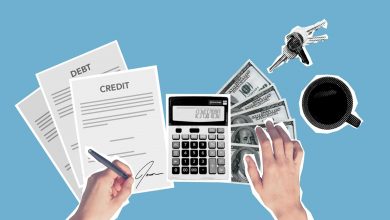Tips for Selecting the Ideal Bank for Managing Your Finances – FangWallet

This article may contain references to products or services from one or more of our advertisers or partners. We may receive compensation when you click on links to those products or services. Nonetheless, our opinions are our own.
Key Highlights
- Find the best bank to take care of your money.
- Understand the different banks and how they handle your funds.
- Consider important factors when choosing a bank, like fees, interest rates, and accessibility.
- Use this guide to help you choose the right bank for your needs.
- Learn how to open your first account and build a relationship with your bank.
Introduction
In today’s financial world, choosing the right bank account is crucial. Whether you need a simple checking account for everyday spending or a savings account to grow your money, picking the right bank can make a significant difference. This guide will provide useful tips and information to help you find the best bank for your needs.
Understanding the Banking Landscape
The banking industry is large and includes many types of financial institutions. These institutions offer different products and services, so it’s important to understand your options before choosing where to keep your money. Traditional banks with physical locations and newer online-only banks each have their advantages. Understanding the differences can help you pick the right option based on your financial goals.
Navigating this space can feel overwhelming, but it doesn’t have to be. By learning about the types of banks and their services, you can simplify the process and find a financial partner that fits your needs.
Types of Banks and Financial Institutions
There are several types of banking institutions, each with unique features:
- Credit Unions: These are not-for-profit organizations owned by their members. Credit unions tend to offer better interest rates and lower fees compared to traditional banks, as their goal is to support members and the community.
- National Banks: These banks operate nationwide, offering a wide range of financial products like checking and savings accounts, loans, and credit cards. They have many branches and ATMs.
- Online Banks: Online-only banks don’t have physical branches, which allows them to keep costs lower. They often offer higher interest rates on savings accounts and lower fees for checking accounts.
The Role of a Bank in Personal Finance
Banks are vital for managing personal finances. Here are the main services they provide:
- Safe Storage of Funds: Banks protect your money from theft or loss.
- Easy Access to Funds: You can access your money anytime via debit cards, ATMs, or online banking.
- Direct Deposit and Bill Pay: Direct deposit ensures your paycheck goes straight into your bank account. You can also set up automatic bill payments to manage your finances more easily.
Factors to Consider When Choosing a Bank
When selecting a bank, there are several important factors to consider:
- Fees and Charges: Look at monthly maintenance fees, ATM fees, overdraft charges, and wire transfer fees.
- Interest Rates: Compare the interest rates for savings and checking accounts to maximize your deposit earnings.
- Accessibility and Convenience: Think about how easy it is to access your bank. Consider the locations of branches and ATMs and the quality of online and mobile banking services. Customer service accessibility is also important.
Fees and Charges Comparison
Banks charge different fees for their services. Here’s a breakdown of common charges to look out for:
- Monthly Fees: Some banks charge a monthly fee for checking or savings accounts. Check if there’s a minimum balance requirement to avoid these fees.
- Overdraft Fees: Research overdraft protection fees in case you spend more than what’s in your account.
- Statement Fees: Some banks charge fees for paper statements. Find out how often your bank sends statements and if there are any fees for paper copies.
Accessibility and Convenience
Consider these factors when evaluating a bank’s accessibility:
- Branch and ATM Network: If you like to bank in person or need cash frequently, choose a bank with convenient locations.
- Online Banking: Many banks offer online banking, which allows you to check balances, transfer money, and pay bills online.
- Mobile Banking: A user-friendly mobile app makes banking on the go easier. You can deposit checks, manage your accounts, and more.
Online and Mobile Banking Features
Modern banking relies on technology. Here’s how to evaluate a bank’s digital services:
- Online Access: Ensure the bank’s website is secure and easy to navigate, offering the online banking features you need.
- Mobile Banking: Download and explore the bank’s mobile app. Check its usability, features, and design.
- Digital Tools: Some banks offer tools to help track spending, manage budgets, or even invest. Ask about these options if they’re important to you.
Getting Started with Banking
Opening your first bank account is a simple process. Follow these steps:
- Research and Compare: Take the time to compare banks based on fees, interest rates, and the features you need.
- Gather Necessary Documents: To open an account, you’ll typically need:
- A government-issued ID (driver’s license, state ID, or passport)
- Your Social Security number
- Proof of address (e.g., utility bill or lease agreement)
Initial Deposit Requirements
Banks may require a minimum deposit to open an account. The amount can vary depending on the bank and the type of account.
Step-by-Step Guide to Selecting Your Bank
Choosing a bank can feel overwhelming, but following these steps will make it easier:
- Assess Your Financial Needs: Determine the type of account you need (checking, savings, or money market) and decide which features matter most (e.g., mobile banking, access to ATMs).
- Research and Compare Banks: Look at different banks’ fees, interest rates, and services. Don’t forget to read customer reviews.
- Consider the Convenience Factor: Think about how easy it will be to access your bank’s services, whether in-person, online, or via mobile.
- Read Reviews and Customer Feedback: Look for feedback on customer service and overall satisfaction to find a bank with a strong reputation.
- Visit a Branch or Contact Customer Service: Visit a branch to get a feel for customer service, or contact them with questions before making your final decision.
Types of Accounts Offered by Banks
Banks offer a variety of accounts to meet different needs:
- Checking Account: This account is for day-to-day transactions. You can write checks, pay bills, and withdraw money from ATMs.
- Savings Account: A savings account is for storing money while earning interest. It’s a safe way to grow your funds.
- Money Market Account: This account combines features of both checking and savings. It often requires a higher minimum balance but offers a higher interest rate.
Conclusion
Choosing the right bank is essential for managing your money effectively. Consider fees, interest rates, and accessibility when making your decision. Take your time, research your options, and find a bank that meets your needs. A good relationship with your bank, along with using its tools and services, will help you achieve your financial goals.
Frequently Asked Questions
What is the minimum balance required to avoid fees?
The minimum balance required to avoid fees can vary depending on the bank and the type of account. Many banks waive monthly service fees if you maintain a minimum daily balance or if you meet specific criteria, such as receiving a certain amount through direct deposit each month. Be sure to check your bank’s specific requirements to avoid unexpected fees.
How do I choose between a traditional bank and an online bank?
Consider your priorities when deciding between a traditional and an online bank. Traditional banks offer in-person services and a network of branches and ATMs, which may be important if you prefer face-to-face interaction. On the other hand, online banks typically offer lower fees and higher interest rates because they don’t have the overhead costs of physical branches. Consider what services you value most, such as convenience, fees, and access to customer support, before deciding.
What types of accounts should I open as a beginner?
As a beginner, starting with a basic checking account and a savings account is best. A checking account allows you to manage day-to-day transactions, like paying bills and making purchases, while a savings account helps you save money while earning interest. Once you’re comfortable managing these accounts, you can explore additional options like money market accounts or high-yield savings accounts to grow your savings further.

Reviewed and edited by Albert Fang.
See a typo or want to suggest an edit/revision to the content? Use the comment form below for feedback.
At FangWallet, we value editorial integrity and open collaboration in curating quality content for readers to enjoy. Much appreciated for the assist.
Did you like our article and find it insightful? We encourage sharing the article link with family and friends to benefit as well – better yet, sharing on social media. Thank you for the support!
Article Title: Tips for Selecting the Ideal Bank for Managing Your Finances
https://fangwallet.com/2024/12/12/tips-for-selecting-the-ideal-bank/The FangWallet Promise
FangWallet is an editorially independent resource – founded on breaking down challenging financial concepts for anyone to understand since 2014. While we adhere to editorial integrity, note that this post may contain references to products from our partners.
The FangWallet promise is always to have your best interest in mind and be transparent and honest about the financial picture.
Become an Insider
Editorial Disclaimer: The editorial content on this page is not provided by any of the companies mentioned. The opinions expressed here are the author’s alone.
The content of this website is for informational purposes only and does not represent investment advice, or an offer or solicitation to buy or sell any security, investment, or product. Investors are encouraged to do their own due diligence, and, if necessary, consult professional advising before making any investment decisions. Investing involves a high degree of risk, and financial losses may occur including the potential loss of principal.
Advertiser Disclosure: This article may contain references to products or services from one or more of our advertisers or partners. We may receive compensation when you click on links to those products or services.
Source: Tips for Selecting the Ideal Bank for Managing Your Finances – FangWallet





